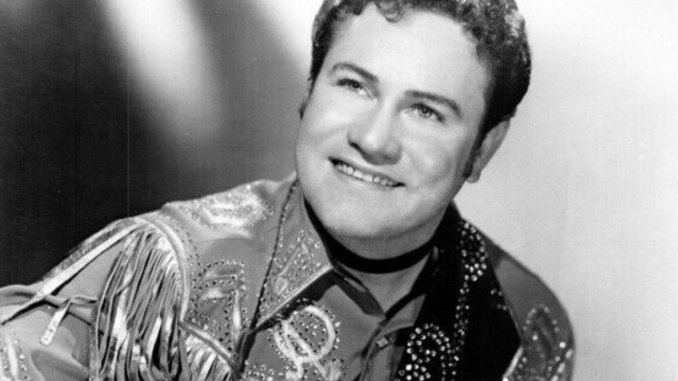
‘Long Black Veil’ is a country ballad that was written and first recorded in 1959 and still stands the hairs on the back of the neck when it is performed and heard, over 60 years later. Originally recorded by Lefty Frizzell as a single, it became his most successful song for years, peaking at #6 on the Billboard country charts. Whilst this might seem like a middling level accomplishment in its time, since its release ‘LBV’ has become a stone-cold standard of country music with myriad versions that reflect the regard that artists of all stripes have for the song.
At its heart it is a classic country story song, and a death song to boot. The narrative is clear and familiar: man wrongly accused of a murder, refuses to offer up an alibi that will save his life because he was otherwise engaged in “the arms of his best friend’s wife”. Said wife says nothing too but then spends eternity mourning over her lover’s bones – so far so ‘Country Death Song’ (with thanks to Gordon Gano). Clearly this narrative is not a universal story, we can’t all relate directly to stories of betrayal, murder and unjust executions. But it is a universally resonant story and we all have the capacity to be affected by the resonances present in the many versions of the song.
In just 139 short words the song captures multitudes; undying love and devotion, eternal grief and defeat, treacherous infidelity, unbelievable humility and selflessness, hypocrisy, murder, mystery and injustice are all addressed and combine to create an atmosphere of profound, even wretched, anguish and pathos. It really is as bleak as it gets, with no sign of redemption for any of those involved. This unremitting darkness is perhaps what draws so many to the song, and may have been where I made my connection with it in the first instance. This darkness has developed a life of its own, such that it has become a trope for infidelity gone wrong and the disastrous consequences wrought thereby; witness the novel ‘Long Black Veil’ by Jennifer Finney Boylan that (apparently) untangles a woman’s past and a mysterious death through an examination of the secret’s we keep.
‘Long Black Veil’ was written by Danny Dill and Marijohn Wilkin. Wilkin is an interesting character in her own right. A successful female songwriter and business person in Nashville when that was still a rarity. Long before Loretta, Dolly or Bobbie Gentry took up the pen mantel she was writing successful songs for Wanda Jackson, Jimmy C Newman and Stonewall Jackson and even had them covered by The Beatles and Rod the Mod. As well as ‘Long Black Veil’ she is responsible for another out and out country gospel classic, in the shape of “One Day at a Time”, which she co-wrote with her protégé, mentee and friend, Kris Kristofferson. The slow, ballad tempo and the platonic simplicity of the song leave infinite possibilities for interpretation within a very tight and minimal format, perhaps why it is such a widely covered song.
The number and assortment of covers is way beyond the scope of this piece but, ranging from genius Greenwich folky Fred Neil, through The Byrds, Michael Nesmith and Richard Hawley to outliers such as Nick Cave and Paul Westerberg ‘Long Black Veil’ never loses its essence, no matter who is playing it. Perhaps the most well-known version is Johnny Cash’s from the ‘Orange Blossom Special’ LP, yet it is Frizzell’s original recording of the song, which was included in the National Recording Registry by the Library of Congress because of it was deemed “culturally, historically, or aesthetically significant and/or inform or reflect life in the United States”.
It is therefore Frizzell’s original that we offer here, with a twist. Following his version is an ‘answer’ version by Wilkin herself, reflecting the perspective of the grieving woman who “Walks these hills in a Long Black Veil”.



Nice analysis – but would the best known cover not be from the Band’s debut and seminal album Music From Big Pink. Rick Danko’s plaintive voice absolutely perfect for the emotions of the song.